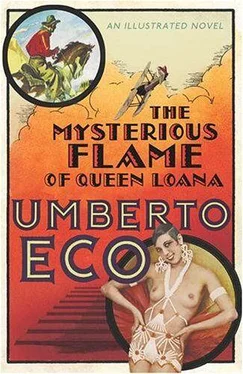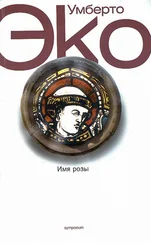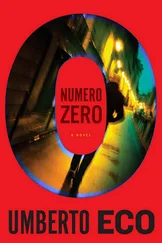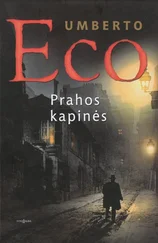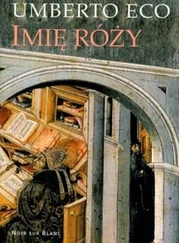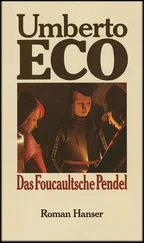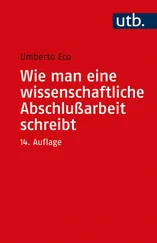Umberto Eco - The Mysterious Flame Of Queen Loana
Здесь есть возможность читать онлайн «Umberto Eco - The Mysterious Flame Of Queen Loana» весь текст электронной книги совершенно бесплатно (целиком полную версию без сокращений). В некоторых случаях можно слушать аудио, скачать через торрент в формате fb2 и присутствует краткое содержание. Жанр: Исторический детектив, на французском языке. Описание произведения, (предисловие) а так же отзывы посетителей доступны на портале библиотеки ЛибКат.
- Название:The Mysterious Flame Of Queen Loana
- Автор:
- Жанр:
- Год:неизвестен
- ISBN:нет данных
- Рейтинг книги:3 / 5. Голосов: 1
-
Избранное:Добавить в избранное
- Отзывы:
-
Ваша оценка:
- 60
- 1
- 2
- 3
- 4
- 5
The Mysterious Flame Of Queen Loana: краткое содержание, описание и аннотация
Предлагаем к чтению аннотацию, описание, краткое содержание или предисловие (зависит от того, что написал сам автор книги «The Mysterious Flame Of Queen Loana»). Если вы не нашли необходимую информацию о книге — напишите в комментариях, мы постараемся отыскать её.
The Mysterious Flame Of Queen Loana — читать онлайн бесплатно полную книгу (весь текст) целиком
Ниже представлен текст книги, разбитый по страницам. Система сохранения места последней прочитанной страницы, позволяет с удобством читать онлайн бесплатно книгу «The Mysterious Flame Of Queen Loana», без необходимости каждый раз заново искать на чём Вы остановились. Поставьте закладку, и сможете в любой момент перейти на страницу, на которой закончили чтение.
Интервал:
Закладка:
My reader from the fourth grade, 1940-1941 (that autumn we were in the first year of the war), contained only histories of glorious actions from World War I, with pictures that showed our infantrymen standing on the Carso, naked and muscled, like Roman gladiators.
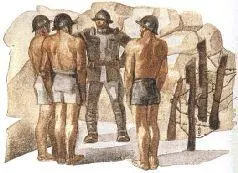
But on other pages there appeared, perhaps to reconcile Balilla Boys with Angels, stories about Christmas Eve that were full of sweetness and light. Since we were to lose all of Italian East Africa only at the end of 1941, by which time that book was already making the rounds in schools, our proud colonial troops were still featured, and I was struck by a Somali Dubat in his handsome, characteristic uniform, which had been adapted from the style of dress of those natives we were civilizing: he was bare-chested except for a white sash knotted to his ammo belt. The caption was pure poetry: The legionary Eagle spreads its wings - over the world: only the Lord shall stop it. But Somaliland had already fallen into English hands by February, perhaps even as I was first reading that page. Did I know it at the time?
In any case, in that same syllabary I was also reading The Basket recycled: Goodbye to the thunder blast! / Goodbye to the stormy day! / The clouds have run away / and the sky is clean at last… / The world , consoled , grows calm , / and on each afflicted thing , / quiet and comforting , / peace settles like a balm.
And what about the war in progress? My fifth-grade reader included a meditation on racial differences, with a section on the Jews and the attention that should be paid to this untrustworthy breed, who "having shrewdly infiltrated Aryan regions… introduced among the Nordic peoples a new spirit made up of mercantilism and profit hunger." I also found in those boxes various issues of Defense of the Race , a magazine founded in 1938. (I do not know whether my grandfather ever allowed it to fall into my hands, but I suspect I poked my nose into everything sooner or later.) They contained photos that compared aborigines to an ape and others that revealed the monstrous consequences of crossing a Chinese with a European (such degenerate phenomena, however, apparently occurred only in France). They spoke highly of the Japanese race and pointed out the unmistakable stigmata of the English race-women with double chins, ruddy gentlemen with alcoholic noses-and one cartoon showed a woman wearing a British helmet, immodestly covered with nothing but a few pages of the Times arranged like a tutu: she was looking in the mirror, and TIMES, backwards, appeared as SEMIT. As for actual Jews, there was little to choose from: a survey of hooked noses and unkempt beards, of piggy, sensual mouths with buckteeth, of brachycephalic skulls and scarred cheekbones and wretched Judas eyes, of the unchecked guts of well-dressed profiteers, their gold fobs dangling from their watch pockets and their greedy hands poised above the riches of the proletarian masses.
My grandfather, presumably, had inserted among those pages a propaganda postcard showing a repugnant Jew, with the Statue of Liberty in the background, thrusting his fists toward the viewer. And there was something for everyone: another postcard showed a grotesque, drunken Negro in a cowboy hat clutching a big, clawlike hand around the white midriff of the Venus de Milo. The artist had apparently forgotten that we had also declared war on Greece, so why should we have cared if that brute was groping a mutilated Greek woman, whose husband went around in a kilt with pompoms on his shoes?
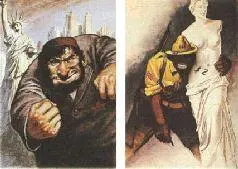
For contrast, the magazine showed the pure, virile profiles of the Italic race, and when it came to Dante and a few of our leaders whose noses were not exactly small or straight, they spoke in terms of the "aquiline race." In case the appeal to uphold the Aryan purity of my countrymen had not completely convinced me, my school-book contained a fine poem about Il Duce ( Square is his chin, his chest is squarer yet, / His footstep that of a pillar walking, / His voice as biting as a fountain’s jet ) and a comparison of the masculine features of Julius Caesar with those of Mussolini (I would learn only later, from encyclopedias, that Caesar used to go to bed with his legionnaires).
Italians were all beautiful. Beautiful Mussolini himself, who appeared on the cover of Tempo, an illustrated weekly, on horseback, sword raised high (an actual photo, not some artist’s allegorical invention-does that mean he went around carrying a sword?) to celebrate our entry into the war; beautiful the blackshirt proclaiming things like HATE THE ENEMY and WE WILL WIN!; beautiful the Roman swords stretching toward the outline of Great Britain;
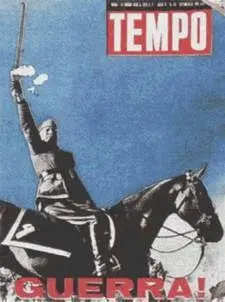
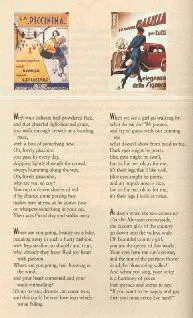
beautiful the rustic hand turning up its thumb as London burned; beautiful the proud legionnaire outlined against the backdrop of the ruins of Amba Alagi, promising WE WILL RETURN!
Optimism. My radio continued to sing Oh he was big but he wasn’t tall, they called him Bombolo, he danced a jig then started to fall and tumbled head over toe, he tumbled here, he tumbled there, he bounced like a rubber ball, his luck was gone, he fell in a pond, but he floated after all.
But beautiful above all else were the images, in magazines and publicity posters, of pure-blooded Italian girls, with their large breasts and soft curves, splendid baby-making machines in contrast to those bony, anorexic English misses and to the "crisis woman" of our own plutocratic past. Beautiful the young ladies who seemed to be actively competing in the "Five Thousand Lire for a Smile" contest, and beautiful also that provocative woman, her rear well defined by a seductive skirt, who strode across a publicity poster as the radio assured me that dark eyes might be pretty, blue eyes might be swell, but as for me, oh as for me, it’s their legs that I like well.
Utterly beautiful the girls in all the songs, whether they were rural, Italic beauties ("the buxom country girls") or urban beauties like the "lovely piccinina," that milliner’s assistant from Milan with her delicate half-powdered face, walking through crowds at a bustling pace… Or beauties on bikes, symbols of a brash, disheveled femininity, with legs so slim, so shapely and trim.
Ugly, of course, were our enemies, and several copies of Balilla , the weekly for the Italian Fascist Youth, contained illustrations by De Seta alongside stories that made fun of the enemy, always through brutish caricatures: The war had him worried / so King Georgie scurried / for defense from things sinister / to Big Winston , his Minister -and then there were the other two villains, Big Bad Roosevelt and the terrible Stalin, the red ogre of the Kremlin.
The English were bad because they used the equivalent of Lei , whereas good Italians were supposed to use, even when addressing people they knew, nothing but the oh-so-Italian Vo i. A basic knowledge of foreign languages suggests that it is the English and French who use Vo i ( you , vous ), whereas Lei is very Italian, though perhaps influenced by Spanish, and at the time we were thick as thieves with Franco’s Spain. As for the German Sie , it is a Lei or a Low , but not a Vo i. In any case, perhaps as a result of poor knowledge of things foreign, Lei as the polite form of you had been rejected by the higher powers in favor of Vo i -my grandfather had kept clippings that were quite explicit and rather inflexible on the matter. He had also had the presence of mind to save the last issue of a women’s magazine called Lei , in which it was announced that beginning with the next issue it would be called Annabella. Obviously, the Lei in this context was not an address to "you," the magazine’s ideal reader, but rather an instance of the pronoun "she," indicating that the magazine was aimed at women, not men. But regardless, the word Lei , even when serving a different grammatical function, had become taboo. I wondered if the whole episode had made the women who read the magazine laugh at the time, and yet it had happened and everyone had put up with it.
Читать дальшеИнтервал:
Закладка:
Похожие книги на «The Mysterious Flame Of Queen Loana»
Представляем Вашему вниманию похожие книги на «The Mysterious Flame Of Queen Loana» списком для выбора. Мы отобрали схожую по названию и смыслу литературу в надежде предоставить читателям больше вариантов отыскать новые, интересные, ещё непрочитанные произведения.
Обсуждение, отзывы о книге «The Mysterious Flame Of Queen Loana» и просто собственные мнения читателей. Оставьте ваши комментарии, напишите, что Вы думаете о произведении, его смысле или главных героях. Укажите что конкретно понравилось, а что нет, и почему Вы так считаете.
